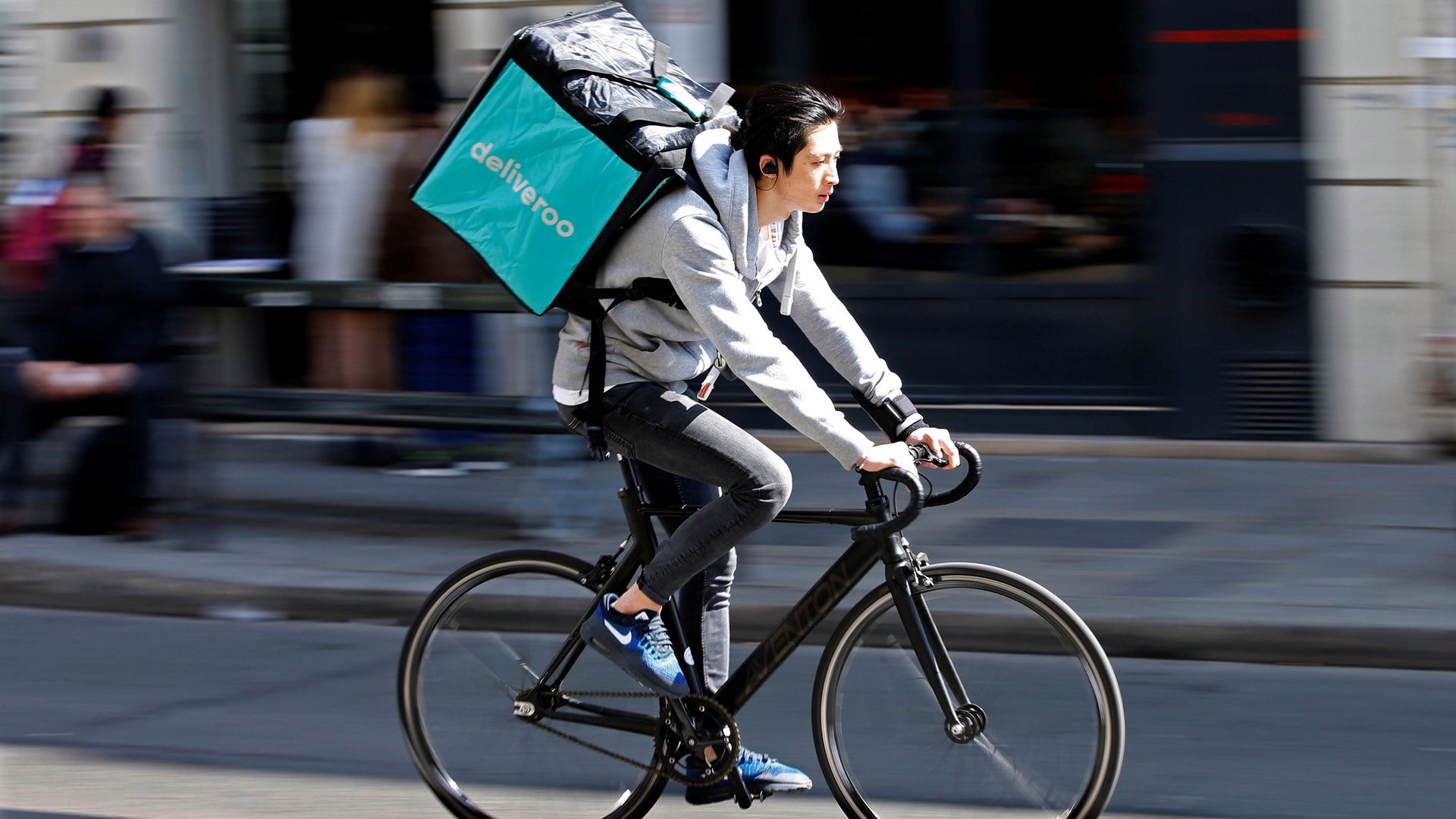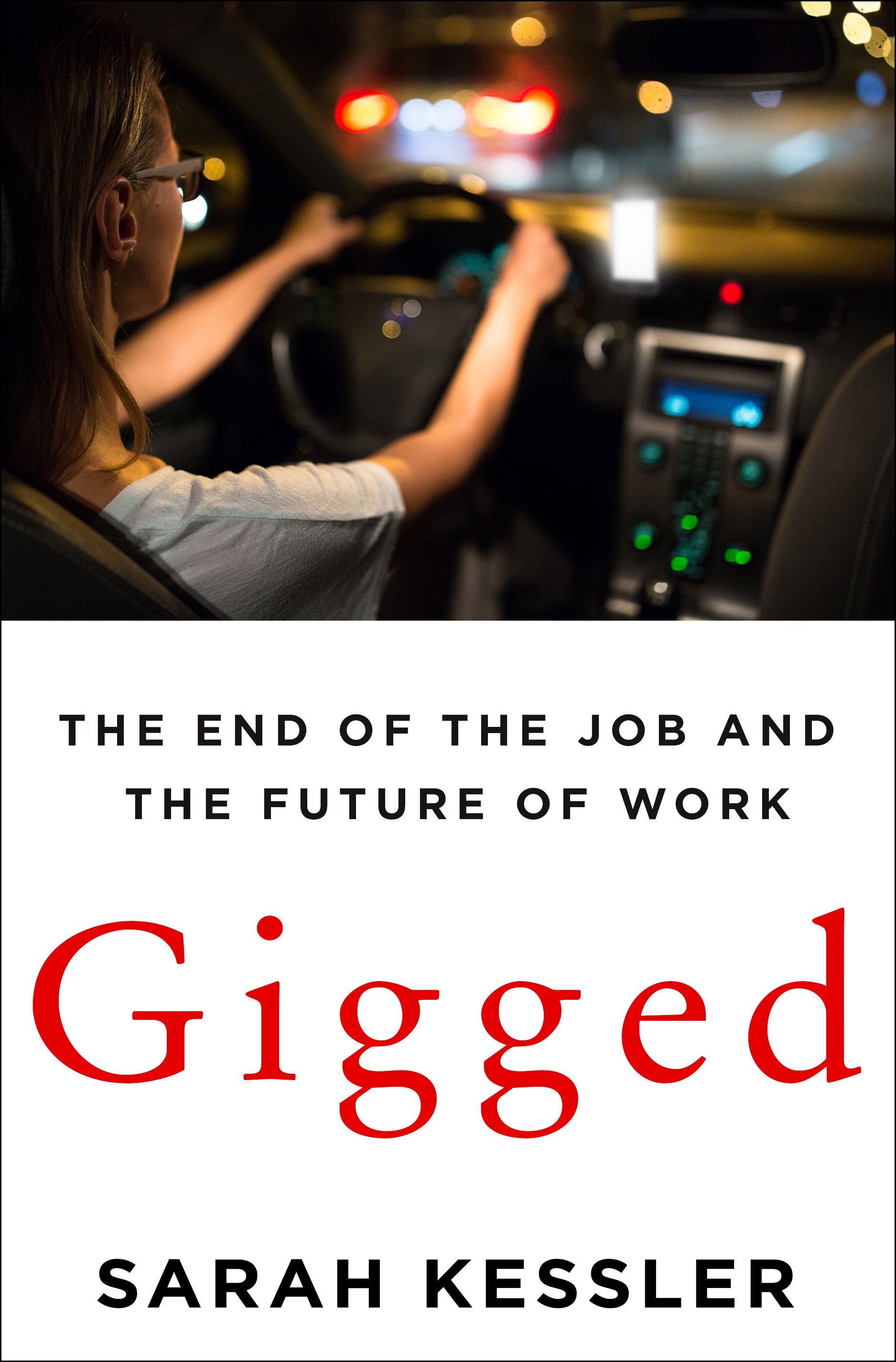Startups have spun an incomplete narrative about the future of work
When I first heard about the “future of work,” I was a reporter at a tech blog—a job that involved wading through an endless stream of startup pitches.


When I first heard about the “future of work,” I was a reporter at a tech blog—a job that involved wading through an endless stream of startup pitches.
This future, dozens of young entrepreneurs explained to me, didn’t involve jobs. Nobody liked jobs: The boredom! The rigid structure! The obedience! What the world really needed were gigs.
The pitch came in different versions. Some startups had created ecommerce stores for labor. Small businesses and Fortune 500 companies alike could sift through workers by skill and hire them on a project-by-project basis. Other startups worked more like dispatchers. Drivers, dog walkers, and errand runners could get notifications on their phones when a job became available and choose to either accept it or reject it. Another small handful of companies had taken a third approach, breaking work into tiny tasks that took only minutes and paid only cents. They assigned online crowds of people to work on large, tedious projects, like transcribing audiotapes, or checking to make sure that grocery stores across the country remembered to put a certain brand of cola in a prime location.
The rise of these new apps, their founders assured me, meant that soon we would all be working on the projects we chose, during the hours that we wanted. We would no longer be laboring for the man, but for our own tiny businesses. This meant that in the future, it wouldn’t matter how many jobs got shipped overseas or were taken by robots. We could work for our neighbors, connect with as many projects as we needed to get by, and fit them all in between our band rehearsals, gardening, and other passion projects. It would be more than the end of unemployment. It would be the end of drudgery.
At 22, the whole idea sounded great to me. In addition to sounding like more fun than a job, it relieved a deep uncertainty I had about the future.
From a young age, my baby boomer parents had instilled in me that the mission of becoming an adult—the path to dignity, security, and independence—was to obtain a job. Most adults I knew in my rural Wisconsin town had straightforward professions like teacher, lawyer, and mechanic. They worked at the grocery store or for the postal service. A large Nestlé factory in a town nearby made the air smell like chocolate if the wind blew just right, and another made Kikkoman soy sauce. Becoming employable—not following dreams, seeking some sort of personal fulfillment, or whatever it is they tell kids in coastal states—was in itself deserving of respect and dignity.
So eager was I to become a real person, a person with a job, that I’d spent a good chunk of my summer vacation before high school at a greenhouse, picking aphids off of herbs and pulling the hard-to-reach weeds (being 13, I was skinny enough to squeeze between plant stands). My parents didn’t need the money. I didn’t need the money. Jobs just felt instinctively important.
Soon, they would also feel particularly elusive.
In 2005, when I was a junior in high school, I decided I would become a journalist. In 2007, as newsrooms were scrambling to move their business models online, the Great Recession started. And three years after that, the winter of my senior year of college, the unemployment rate in the United States hit double digits. Only the computer programmers, it seemed, were excited for graduation.
As I conjured a frantic storm of resumes, informational interviews, and job fair mailing lists, I had trouble sleeping and, at times, breathing. Though at the time I was narrowly focused on my own employment prospects (or lack thereof), my anxiety was small by comparison to many. I had a college degree, parents willing to help me, and connections at a local greenhouse that would have been happy to have me back for another summer. I was going to be ok. About the future, the world around me, I wasn’t so sure.
Media wasn’t the only industry being remade by technology. As newsrooms were announcing layoffs, other companies were using internet freelance marketplaces and staffing to zap white-collar jobs overseas. Artificial intelligence and robotics were replacing others. Many of the jobs that remained no longer came with security. Companies had, under pressure from shareholders, cut the fat from their benefits packages for employees, piling more and more risk onto their shoulders.
As a young person, you’re not allowed to sit out the future. You don’t get to put off learning how to use email because you’d rather fax. Nobody thinks that’s endearing. When you see a trend coming down the pike, you know it’s going to hit you. So perhaps when entrepreneurs described for me a world in which work would be like shopping at a bazaar (a gig economy startup had picked up this concept in its name, Zaarly), it appealed to me more than it would have to someone with more gray hairs: I’ll take that vision of the future—no need to play that horrifying mass unemployment and poverty vision that I had all lined up and ready to go.

I wrote my first story about the gig economy in 2011, long before anyone had labeled it the “gig economy” (I called it “online odd jobs”). Though my job changed throughout the next seven years, my fascination with the gig economy didn’t. I first watched as the gig economy became a venture capital feeding frenzy, a hot new topic and a ready answer to the broader economy’s problems. Then I saw it become the subject of lawsuits and a political talking point.
The more I have learned about the gig economy—on the same timeline that things like retirement savings and health insurance have become more important to me—the more I understood that the startup “future of work” story, as consoling as it was, was also incomplete. Yes, the gig economy could create opportunity for some people, but it also could amplify the same problems that made the world of work look so terrifying in the first place: insecurity, increased risk, lack of stability, and diminishing workers’ rights. A software programmer with marketable skills and a year’s worth of savings could easily ignore the negative side of that coin. But what the startup narrative had always left out was that the future of work could look very different depending on where you were standing.
Sarah Kessler is the deputy editor of Quartz At Work. This article has been adapted from her book Gigged: The End of the Job and the Future of Work.